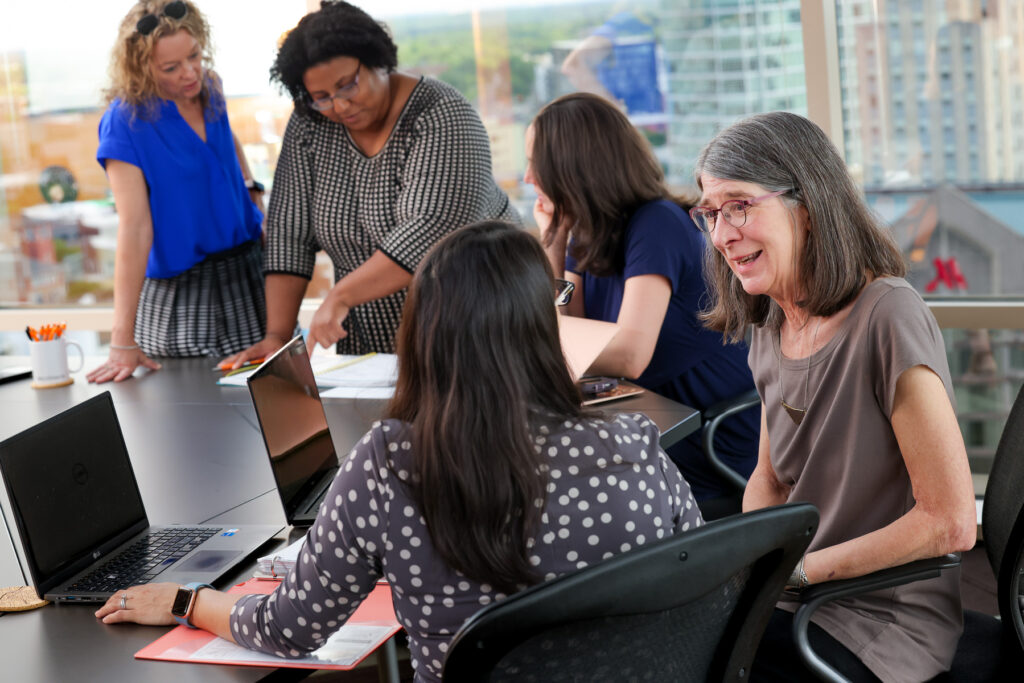At Catalyst Consulting Group, we love a good, data-driven story. We recently published an article in the Journal of Geoscience Education that is just that. While Catalyst and our larger group of co-authors for this paper have a history of publishing this kind of work, Navigating Learning Ecosystems: Exploring students’ use of agency in marine and environmental sciences was my first experience leading a publication for an academic journal. Here I share a couple of lessons I learned while writing this manuscript.
Sometimes the story isn’t what you originally thought. When we began the research, our data collection was focused on program alumnae’s identities as scientists and how participation in summer research experiences may have influenced their professional journey. Instead, we heard stories of deliberate decisions and experiences each person sought out to remain in their STEM academic pathway, which at times included leaving the pathway to sometimes re-enter later. We recognized this construct as agency, or students’ sense of control over how and when they engage in STEM experiences (Secules et. al., 2018).
This shift in focus was also a shift in axiology. This paper argues intervention programs aren’t something that “happen” to students, but something that they readily and intentionally engage with. Following the data and reframing things from this perspective shifted the locus of control from program to participant. When using these kinds of people-centered approaches , the research becomes less about the program and “more about how people will thrive as a result of it (Bledsoe, 2021, p. 17).” As the Catalyst team continues to study alumni in these context, we are considering additional qualitative methodologies such as case studies, portraiture, journey mapping and grounded theories to explore how people navigate through systems.
We need to change the narrative around student agency. Another shift involved the ways that agency is framed in relation to the prolific deficit models used to explore underrepresented students’ experiences in STEM. The central story in many evaluation and research reports about student agency focuses on exposing students to experiences or skills to which they lack access or teaching them how to “survive” in negative environments. Our analysis provides an alternative way to consider this work that recognizes and honors the power and intentionality of students who participate in these types of programs. When students shared challenges they experienced along the way, they also spoke about their abilities to find additional ways to forge their path. For example, some had taken time away from academics to reassess their commitment to the field or to meet financial challenges before pursuing advanced degrees. In these cases, students were able to continue, leave and re-enter the marine science learning ecosystem on their own terms without questioning or defending if they belonged while being able to self-determine where and how they belonged.
When operating with very small sample sizes, additional attention must be given to anonymity, validity and reliability. This project involved only 22 people at a small institution. In a qualitative study such as this, it could have been easy for someone with knowledge of the project to identify participants from the stories they shared. We decided to use member checking, both as a way to verify the ways we interpreted the data and to ensure that participants were comfortable with what we were sharing and how it was framed. The practice of member checking involves providing participants with a summary of the findings and asking them whether they are an accurate reflection of their experience (Creswell and Plano Clark, 2011). Member checking has long been considered a best practice for qualitative work. Catalyst has made it standard practice to use member checking on projects where data has the potential to be shared widely to confirm our interpretations and to make sure that those involved in the study are comfortable with how their voice is reflected in our work. This was the first time we’ve had the chance to member check data from students and alumni. Most didn’t share any feedback and those who did felt that our framing was fair. Most of all, I think we were all glad to see their words in print!
PWIs still have a lot to learn from MSIs and HBCUs. Studies continue to find that Black students that attend HBCUs report lower social climate stress, lower levels of interracial stress, more positive academic experiences, and more positive perceptions of the university environment than Black students who attend PWIs (Candis, 2018). Although only 9% of Black collegiate students are enrolled in HBCUs, these institutions confer 30%-40% of Black STEM degree. When studying for my M.Ed. in Higher Education Administration, I spent a lot of time studying the history of HBCUs and the experiences of Black students at HBCUs and PWIs. While writing this paper I was reminded that there are still so many opportunities for cross-institutional collaborations between HBCUs and PWIs that could result in a more positive and supportive environment for STEM students, regardless of their institution.
Research almost always leads to new questions. The lessons shared here will continue to guide me in future Catalyst research endeavors.
Get in touch!
Want a partner with experience leading academic publications? We’d love to talk with you!




